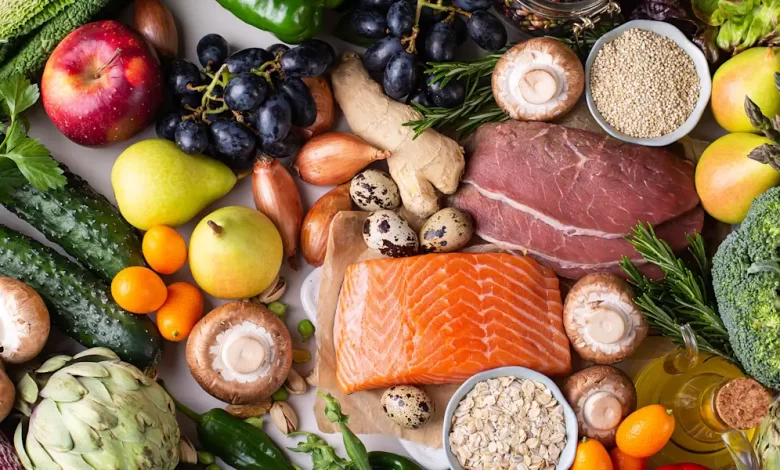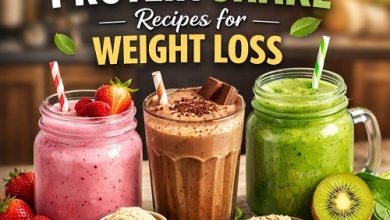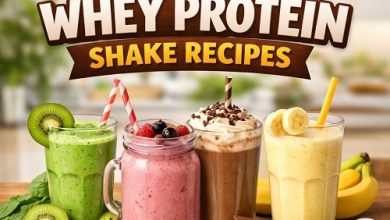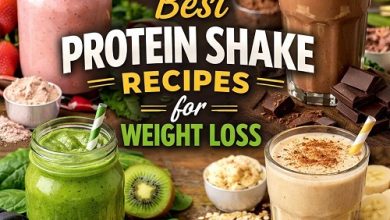Top 10 Foods That Can Help You Thrive with Crohn’s Disease

Crohn’s disease is a chronic inflammatory bowel disease (IBD) that can make eating feel like a daily challenge. For many, food can either calm the digestive system or trigger painful flares. While there is no one-size-fits-all “Crohn’s diet,” research and patient experiences show that some foods are gentler on the digestive tract, help reduce inflammation, and provide essential nutrients that Crohn’s patients often miss out on.
If you or a loved one is navigating Crohn’s, you know that thriving—not just surviving—depends heavily on what you eat. This article explores the top 10 foods that can help you thrive with Crohn’s disease, why they’re beneficial, and tips for preparing them in a Crohn’s-friendly way.
Understanding the Role of Diet in Crohn’s Disease
Before we dive into the top 10 foods, it’s important to understand why diet matters in Crohn’s:
- Nutrient absorption issues – Crohn’s often damages the small intestine, making it harder to absorb vitamins, minerals, and calories.
- Inflammation and irritation – Certain foods can aggravate inflammation, leading to diarrhea, abdominal pain, bloating, and fatigue.
- Individual variation – Triggers vary; what bothers one patient may be safe for another. Keeping a food diary can be life-changing.
- Periods of remission vs. flare-ups – During remission, the gut can tolerate more fiber-rich, nutrient-dense foods, while during flare-ups, softer, lower-fiber, and easily digestible foods are recommended.
The foods listed below are widely considered safe and beneficial for many Crohn’s patients, but always personalize your diet with the help of a gastroenterologist or dietitian.
1. Salmon and Other Fatty Fish
Fatty fish like salmon, mackerel, and sardines are rich in omega-3 fatty acids, which are known for their anti-inflammatory properties. Since Crohn’s involves chronic inflammation, incorporating omega-3-rich foods can help reduce flare frequency and severity.
Why it helps:
- Omega-3s may help modulate the immune system and calm intestinal inflammation.
- Fish is an excellent source of protein, which is crucial for healing tissues damaged by Crohn’s.
- It’s usually easier to digest than red meat, which can sometimes worsen symptoms.
How to prepare:
- Bake, steam, or grill salmon with mild seasonings.
- Avoid heavy frying or spicy marinades, which can irritate the gut.
- Pair with mashed potatoes or steamed carrots for a gentle, Crohn’s-friendly meal.
2. Bananas
Bananas are a powerhouse fruit for Crohn’s patients—soft, easy to digest, and packed with nutrients.
Why it helps:
- Gentle on the stomach and rarely a trigger food.
- Rich in potassium, which can help replace electrolytes lost during diarrhea.
- Provides soluble fiber (pectin) that can help firm up loose stools.
How to prepare:
- Eat ripe bananas (yellow with some brown spots), which are softer and easier to digest than green ones.
- Add banana slices to oatmeal or blend into smoothies with almond milk for a nutrient boost.
3. Rice and Other Refined Grains
Whole grains can sometimes be too harsh for people with Crohn’s, especially during flare-ups. Instead, white rice, sourdough bread, and refined pasta can provide easy-to-digest carbohydrates and calories without irritating the gut.
Why it helps:
- Provides quick energy without adding excess fiber.
- Soft and non-irritating, making it safe during flare-ups.
- Can serve as a base to pair with protein and vegetables.
How to prepare:
- Stick to plain, well-cooked rice.
- Avoid fried rice, heavy sauces, or spicy seasonings.
- Pair with baked chicken or salmon for a balanced meal.
4. Eggs
Eggs are one of the best protein sources for people with Crohn’s. They’re versatile, well-tolerated, and packed with essential nutrients.
Why it helps:
- High-quality protein helps with tissue repair.
- Rich in B vitamins, especially B12, which many Crohn’s patients are deficient in.
- Easy to digest when cooked softly.
How to prepare:
- Scrambled, poached, or boiled are the gentlest options.
- Avoid frying eggs in a lot of butter or oil.
- Pair with white toast or mashed avocado for added nutrition.
5. Avocados
Avocados are a nutrient-dense food that’s surprisingly gentle on the gut when eaten ripe and in moderation.
Why it helps:
- Rich in healthy fats, which are anti-inflammatory.
- Contains folate, potassium, and magnesium—nutrients often lacking in Crohn’s patients.
- Soft texture makes them easy to digest.
How to prepare:
- Mash avocado on sourdough toast.
- Add avocado slices to a salmon salad.
- Blend into smoothies for added creaminess.
6. Carrots (Well-Cooked)
Raw vegetables can be difficult for Crohn’s patients, especially during flare-ups. However, well-cooked carrots are nutrient-rich and gentle on digestion.
Why it helps:
- Cooking breaks down fiber, making carrots easier to digest.
- Rich in beta-carotene (vitamin A precursor), which supports immune function and tissue healing.
- Mild and soothing for the stomach.
How to prepare:
- Steam or boil until soft.
- Mash into soups or purees.
- Avoid raw carrot sticks, which can irritate the gut.
7. Smooth Nut Butters
While whole nuts are often too harsh for Crohn’s patients, smooth nut butters (like peanut butter or almond butter) eating healthy fats and protein without the digestive burden.
Why it helps:
- High in protein and healthy fats, which aid in energy and healing.
- Nutrient-dense source of magnesium, vitamin E, and B vitamins.
- Easier to digest than whole nuts or crunchy nut butters.
How to prepare:
- Spread on white toast or rice cakes.
- Blend into smoothies.
- Avoid nut butters with added sugar, oils, or chunks.
8. Potatoes
Are Potatoes healthy, versatile staple for Crohn’s patients—especially when eaten without the skin.
Why it helps:
- Provides easy-to-digest carbohydrates for energy.
- Rich in potassium and vitamin C.
- Can be prepared in many Crohn’s-friendly ways.
How to prepare:
- Mashed, boiled, or baked without the skin.
- Avoid fried potatoes (like French fries) and heavily spiced versions.
- Pair with lean protein and cooked vegetables for a balanced meal.
9. Oatmeal
Oatmeal is one of the few fiber-rich foods that can be tolerated by many people with Crohn’s, thanks to its soluble fiber content.
Why it helps:
- Soluble fiber can absorb excess fluid and help control diarrhea.
- Provides sustained energy and satiety.
- Gentle on the gut when cooked until soft.
How to prepare:
- Cook with water or lactose-free milk until very soft.
- Top with banana slices or a spoonful of smooth peanut butter.
- Avoid raw oats or granola, which can be too rough on the intestines.
10. Probiotic Yogurt (or Dairy Alternatives)
Gut health is central to managing Crohn’s, and probiotics can play an important role in restoring balance to the microbiome. For those who tolerate dairy, yogurt with live cultures can be highly beneficial. For others, lactose-free or plant-based probiotic yogurts are great alternatives.
Why it helps:
- Contains probiotics, which may help reduce inflammation and restore healthy gut bacteria.
- Provides protein and calcium.
- Gentle and soothing when eaten plain.
How to prepare:
- Choose plain, unsweetened yogurt with live cultures.
- Mix with soft fruits like banana or blended berries.
- Avoid sugary, flavored, or high-fat yogurts, which may trigger symptoms.
Additional Tips for Thriving with Crohn’s Disease
- Stay hydrated: Diarrhea and inflammation can cause dehydration. Aim for water, electrolyte drinks, and herbal teas.
- Eat smaller, frequent meals: Large meals can overwhelm the digestive system.
- Keep a food diary: Track what foods trigger flares and what foods help.
- Work with a dietitian: Personalized nutrition guidance can prevent deficiencies.
- Consider supplements: Many Crohn’s patients need extra vitamin D, calcium, iron, or B12.
Conclusion
Thriving with Crohn’s disease is not just about avoiding trigger foods—it’s about nourishing your body with gut-friendly, anti-inflammatory, and nutrient-rich foods that support healing and energy. The top 10 foods highlighted here—salmon, bananas, refined grains, eggs, avocados, carrots, nut butters, potatoes, oatmeal, and probiotic yogurt—can serve as a foundation for a Crohn’s-friendly diet.
Everyone’s Crohn’s journey is unique, and what works for one person may not work for another. The key is to listen to your body, make gradual adjustments, and consult your healthcare provider to ensure you’re meeting your nutritional needs. With the right foods and strategies, you can go beyond managing Crohn’s—you can thrive.




